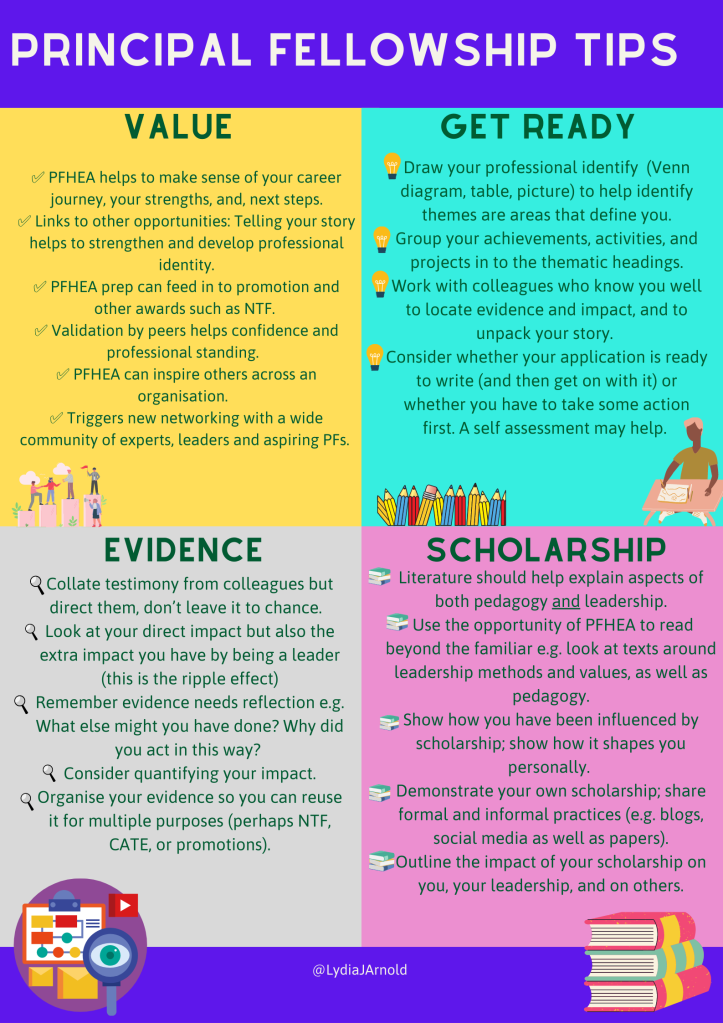After participating in a really interesting panel event for aspiring Principal Fellows, organised by Kate Cuthbert, I was prompted to reflect on the value of PFHEA as well as the process. The summary below offers a quick overview of the benefits of PFHEA and some tips for the process in case it is useful to others, especially perhaps for those making a commitment to PFHEA for a new year’s resolution!

Hi Lydia, happy new year to you. I hope you and your loved ones are safe and well.
What an amazing graphic! I hope you donât mind, but Iâd like to forward it to all the PFHEA and SFHEA candidates I am currently mentoring. Itâs great!
I was going to writ this on the blog page, but when I click to comment, or read previous comments, I get this:
Every good wish and success for you, in 2022.
David
Hi David – the post should be functioning again now – thanks. and a very happy new year to you also. I shared it on Twitter yesterday too, so it is widely available and I am very happy for you to use this in any way that may be helpful. Best wishes